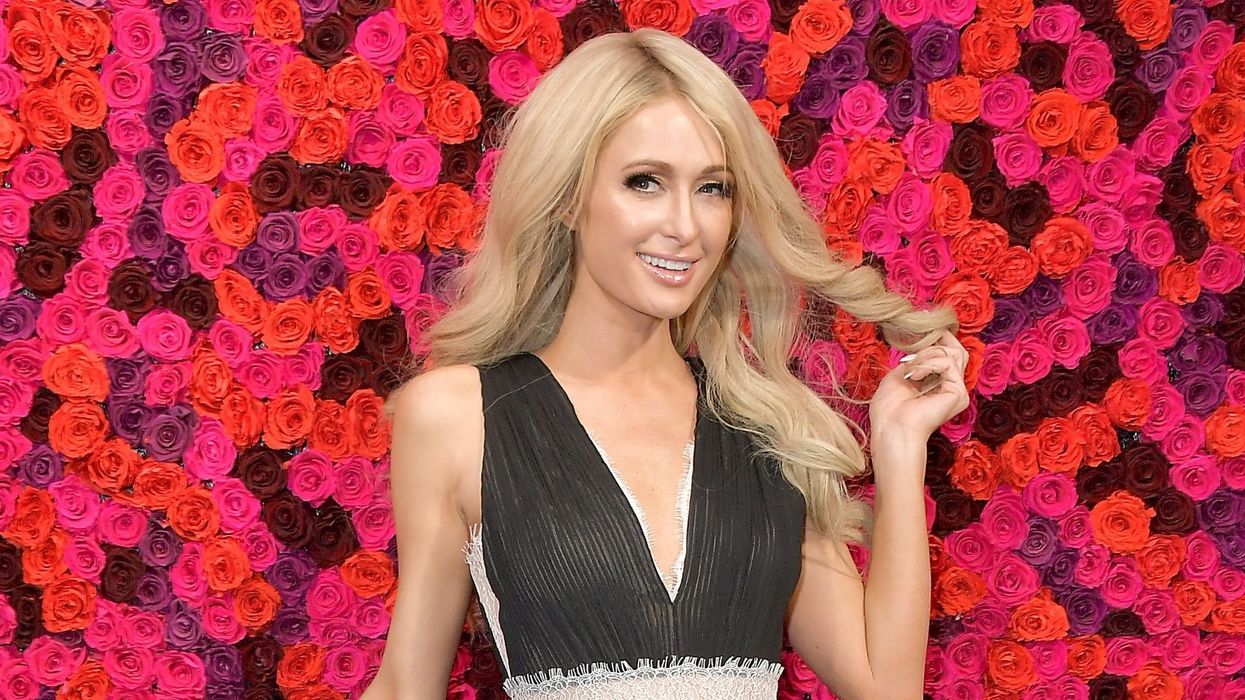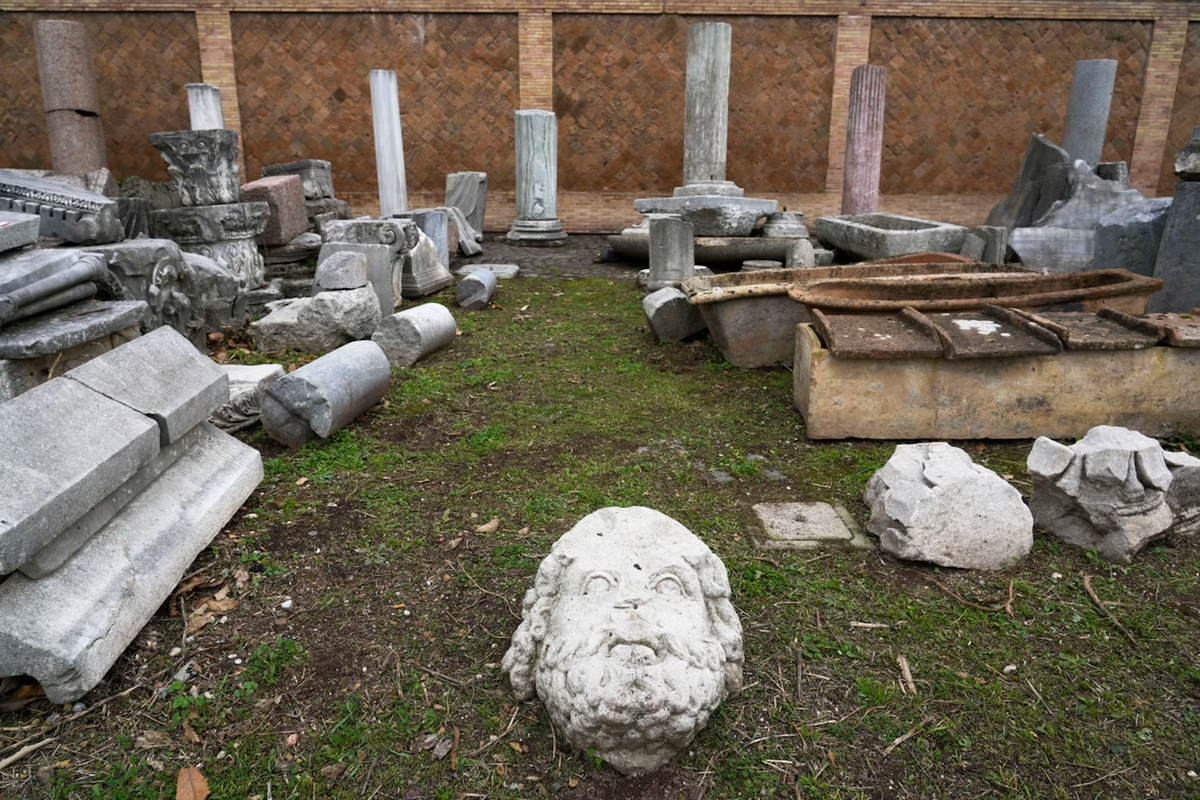Viral
Joanna Taylor
Sep 04, 2020

Getty
Paris Hilton has opened up about the 'multiple abusive relationships' she says she endured in the years since she was abused at boarding school as a teenager.
Hilton's account of "physical and emotional" abuse throughout her life suggests there is no 'typical victim' – and that you never know what someone might be going through.
In a recent interview with People, Hilton said she has a history of abusive relationships. She said:
I went through multiple abusive relationships. I was strangled, I was hit, I was grabbed aggressively.
I put up with things no-one should.
She went on to explain how her experiences at boarding school helped to normalise the abuse she says she endured from some of her ex-boyfriends.
I had become so used to it at Provo, that it made me feel like it was normal.
They all seemed like such nice guys and then the true colours would show. They'd get jealous, or defensive, or try to control me. And then there would come a point where they would become physically, verbally and emotionally abusive.
I didn't really understand what love or relationships were. I thought that them getting so crazy meant that they were in love with me. Looking back, I can't believe I let people treat me like that.
indy100 has been unable to independently verify Hilton's claims.
This new information comes after Hilton alleged that teachers at Provo Canyon, a school for troubled teenagers in Utah she attended in the 1990s, were "physically abusive" towards her and fellow students.
Two of her classmates who will appear in her upcoming YouTube documentary, This is Paris, report having had similar experiences, including being force-fed medication and tied down with restraints. Hilton said she unable to communicate the abuse she was experiencing to her family: she claims that staff would rip up letters or grab the phone out of her hand.
A spokesperson for Provo Canyon School told indy100 that because the school was sold by its previous ownership in 2000, they can't comment on Hilton's claims. Though they did say they're committed to providing a "compassionate" and "nurturing environment for students". They stressed that they do not condone any forms of abuse.
Hilton's story should challenge our assumptions about what survivors of intimate partner violence can look like.
From modelling to acting, singing and DJing, Hilton has almost always lived under the spotlight. She is also incredibly financially and societally privileged: her great-grandfather, Conrad Hilton, founded Hilton Hotels and she has an estimated net worth of $300m.
Of course, fame and financial privilege have never shielded anyone – particularly women and non-binary people – from intimate partner violence or sexual abuse: the #MeToo movement is a stark reminder of that.
But Hilton differs slightly from the Hollywood actors and big-record-label singers who have retrospectively gone public with claims of abuse in that, for those who grew up in the 1990s and 2000s, we thought we knew her whole story. And it seems we were wrong.
As any reality star or influencer will tell you, appearing care free all the time takes a lot of effort. And Hilton now hopes to show people that there's actually "so much more to me than I've ever shown" in her new documentary, which premieres on 14 September.
Hilton's story may finally prove that people don't need to appear to be vulnerable or fit the archetype of a 'victim' to have survived abuse.
Even unconsciously, many of us hold stereotypical views of what a survivor of intimate partner violence is like.
We might struggle to believe that our conception of a "strong" woman – whether that entails being loud, opinionated, unapologetic, financially independent or sexually liberated – will ever suffer privately for abuse.
Ruth Mason, a spokesperson for Women's Aid, explained this to indy100.
Sadly, domestic abuse is prevalent throughout every society and every class in every part of the world. Being successful or wealthy does not give you immunity. Nor is it uncommon for survivors to experience abuse in more than one relationship.
A perpetrator of domestic abuse can be charming and charismatic when they first meet a new partner. However, abusive relationships often start with subtle signs of control: for instance, checking your phone to see who you are texting, making you feel bad for seeing friends or family, or commenting negatively on how you dress.
It is important that these signs are acknowledged at an early stage.
Survivors of domestic abuse can learn to recognise patterns of behaviour intended to demean, denigrate, confuse and control. Violence and abuse are not expressions of love, they are ways to control and torture.
Abusive relationships often involve gaslighting and emotional abuse. Some, but not all, also involve physical or sexual abuse.
Such relationships are the result of a heavily manipulated and unbalanced power dynamic. Suffering from abuse is not a sign of weakness and it is never the victim's fault.
Women's Aid have online resources available for people affected by abusive relationships; as do Refuge.
Lisa King, spokesperson for Refuge, told indy100:
Domestic abuse can happen to anyone regardless of age, background, gender, religion, sexuality or ethnicity.
Right now, Refuge is supporting over 6,500 women and children on any given day to rebuild their lives following abuse. Domestic abuse isn't always physical and like Paris, many of the survivors we support have experienced a pattern of controlling behaviour.
Abuse can emotional, psychological, economic or sexual and anyone forced to alter their behaviour because they are frightened of their partner’s reaction is being abused.
Hilton opening up about alleged abusive relationships helps us see her through a new lens.
She was something of a blueprint for the litany of 'famous because they're famous' influencers and reality stars who followed her. She was the start of the reality TV star phenomenon later carried on by her long time friend Kim Kardashian.
Hilton cashed in on society's expectations of what a 'blonde' heiress should be like. In doing so, she created her own empire – just a slightly different one than the one her grandfather had in mind.
And however far removed her experiences might seem, to see someone in her position challenging our stereotypes of the 'typical victim' is a good thing for everyone.
If you think you may be experiencing domestic violence The National Domestic Violence Helpline is a freephone 24 hour helpline which provides advice and support to women and can refer them to emergency accommodation. There are translation facilities if your first language is not English. You can call the helpline any time on 0808 200 0247. For further information visit https://www.nationaldomesticviolencehelpline.org.uk/
The Men's Advice Line is a confidential helpline for all men experiencing domestic. They provide emotional support and practical advice, and can give you details of specialist services that can give you advice on legal, housing, child contact, mental health and other issues. The helpline is open Monday to Friday, 10am to 1pm and 2pm to 5pm: 0808 801 0327
Top 100
The Conversation (0)













